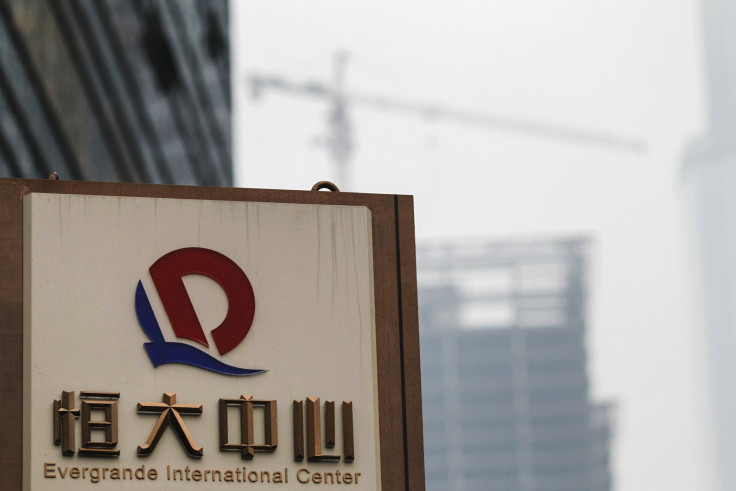Guangzhou Evergrande Sack Coach Cannavaro While Top Of The League, Bring In Scolari

SHANGHAI -- Guangzhou Evergrande, China’s top soccer side of recent years, has lived up to its reputation of also being one of the country’s most ambitious clubs, by sacking its head coach, former Italian World Cup-winning captain Fabio Cannavaro, just six months into his contract -- and bringing in Brazil’s former World Cup-winning manager, Luiz Felipe Scolari, to replace him.
Evergrande, which two years ago became the first Chinese club side to win the Asian Champion’s League (ACL), currently sits joint-top of the Chinese Super League (CSL), and last week qualified for the quarter-finals of this year’s ACL, with a comeback victory over South Korea’s Seongnam FC.
However, after a 2-2 home draw with Tianjin Teda on Thursday evening, the club’s owners, Evergrande Real Estate, one of China’s biggest property developers, appear to have decided it was not good enough.
Cannavaro wrote on Twitter that he had agreed with the club on the “consensual resolution” of his contract, and thanked “all the executives and all the players for the wonderful experience.” However, an Evergrande official seemed to make it clear that Cannavaro’s departure was the club’s decision: “The reason for the change is the same as before,” he told the Xinhua news agency. “We always focus on the strategy instead of the results of games.” The official, who was not named, said that Scolari had been given a two-and-a-half year contract, because he “fits our club’s strategy and ambitions.”
Cannavaro is not the first manager to be sacked by Evergrande when apparently doing well -- in 2012 the club removed South Korean coach Lee Jang-soo soon after he had led the club to its first CSL championship. One Chinese football insider, who asked not to be named, described Cannavaro's sacking as typical “Evergrande logic,” saying the club wanted 100 percent certainty of success, and would change managers whenever it felt this was necessary to guarantee it.
Cannavaro, 41, joined the club in December last year, succeeding his former Italy boss Marcello Lippi, under whom he captained the country to the 2006 World Cup. But while Lippi lived up to his track record by winning three league titles in a row, and taking the club to its first ever Asian Champion’s League win in 2013, Cannavaro’s appointment, apparently recommended by Lippi, aroused some controversy, since his coaching experience was limited to a spell in the United Arab Emirates.
And though results have improved in recent weeks, after a relatively slow start to the season, competition in the Chinese Super League has heated up this season, with former England national team manager Sven-Goran Eriksson having turned Shanghai SIPG into early pace setters in the league, which started in March, and other clubs also challenging Evergrande’s dominance.
The club has now chosen tried and tested experience in the shape of Scolari, who led Brazil to the 2002 World Cup, and to the semi-finals of last year’s World Cup (though he quit after the 7-1 semi-final thrashing by Germany). He also took Portugal to the final of the European Championships in 2004, and briefly managed Chelsea in the English Premier League.
Evergrande, and its ambitious chairman Xu Jiayin, have made it clear that they have grand plans for the club. In partnership with Spanish giants Real Madrid, it has opened the world’s largest soccer school, the Evergrande Academy, which now has over 2,600 young students and is aiming for 10,000. It has also spent big on bringing in Brazilian stars such as Elkeson, Alan and Ricardo Goulart. And it recently secured extra investment by selling a half-share to e-commerce tycoon Jack Ma’s Alibaba Group.
The latest change comes soon after the Chinese government announced its own big dreams for Chinese soccer. President Xi Jinping, a keen soccer fan, has overseen the establishment of a “leading group” on the sport at the top level of China’s leadership, and officials have announced that new soccer textbooks will be issued to every child in the country. The authorities have set a series of goals, including qualifying for the FIFA World Cup Finals (something China has done only once, in 2002), hosting a World Cup Finals, and, eventually, winning the World Cup.
However many Chinese soccer fans remain suspicious of the country’s domestic league, after a series of match-fixing scandals, which have left a number of former stars and referees in jail, as well as what many see as excessive meddling by China’s sports bureaucracy, and a tendency for wealthy companies to rename clubs -- and sometimes to move them to different cities -- when they buy them.
The Evergrande official quoted by Xinhua stressed that he believed Scolari would “not only improve our club, but also help Chinese soccer." Bringing in star foreign coaches and players has not always been successful; former Chelsea stars Didier Drogba and Nicolas Anelka both endured frustrating spells at Shanghai Shenhua. However, some supporters will be hoping that the arrival of another former World Cup-winning coach will contribute to the greater professionalism the Chinese sports authorities say they are trying to build.
© Copyright IBTimes 2024. All rights reserved.






















